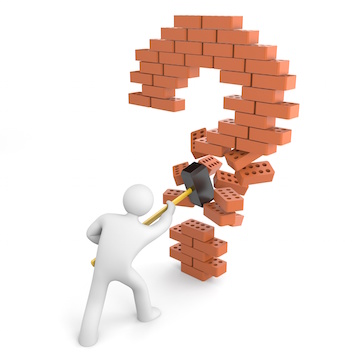I often hear from people who are paralyzed by fear of the unknown. They think they know the next step to take, but they are uncertain whether it will result the way they hope. If they knew, they would take it. Instead, they are stopped by fear.
For example, a woman I spoke with had a dream of moving permanently to a Caribbean island. But she was uncertain about whether it would it be as wonderful as she imagined. She didn’t know for sure. As a result, she was afraid to make the move. She said she feared the unknown.
Uncertainty is real. We are not omniscient. We never know exactly how a plan is going to work out in advance. There are always unknowns. But uncertainty itself doesn’t paralyze you.
What paralyzes you are specific fears. You are imagining something bad happening. The woman I mentioned was worried about whether it would be practical to work remotely from the Caribbean. She wondered if she’d miss her friends and family. Would she really like living there? There was a chance it would be a disaster.
So what do you do? Take fear of the unknown seriously. If you think lack of information could lead to disaster, you need more information.
When fear of unknowns is holding you back, the best way to get the critical information is to do an experiment. Reduce what you’re trying to do to a proof of concept. Set your task to be figuring out a small experiment you could perform, to help you get some of the information you are lacking.
I suggested the woman considering moving to the Caribbean might arrange a 1-month or 3-month stay. She could live and work there much as she would if she were living there, and find out does she like it? Can she work? Her tryout would help her decide whether it’s a good idea — and if so, how to make the real move.
Fear of the unknown is a predictable obstacle. There will always be unknowns. Treat this fear as a request from your subconscious for an experiment to help you get the information you need to pursue your goals.
When I decided to change my business from a solo undertaking into a “real” business, I faced (and still face) a number of unknowns about how to make that shift. But rather than fearing the unknowns, I took an experimental attitude. I made some changes that I knew would create issues. I didn’t know exactly what the issues would be, I just knew it would be difficult. But I also knew that dealing with those difficulties would reveal the information I needed to know — about my values, my skills, and my priorities. I undertook an experiment to help me figure out the way forward.
Growth requires facing the unknown. Face it with an experiment, not fear.








0 Comments